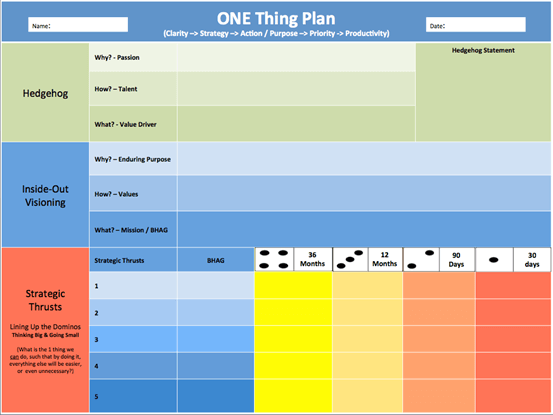How to develop competencies and improve your planning skills
Developing your competencies
I have received a lot of questions from people around how to develop your competencies, so I would like to share some insights in this week’s blog.
When we talk about developing a competency, we propose that you define the competency as clearly as you possibly can.
Think about how you can improve it, develop it and work on it.
What are you going to practically do to develop it? Boil it down to super simple things that you can do.
Once you have identified some things that you can do, the essential thing is to practice, practice, practice.
Our advice is that it’s better to practice outside of work. Practice in your social life and home life first. After you have been practising for a while, look for feedback and measure the results.
What’s working and what’s not working? What could you do differently next time? Be open to feedback and to making changes, and don’t be surprised if you make a few mistakes along the way.
What’s interesting is that by practising first in your home life, you might be surprised to see how the changes translate to your work life, too.
Developing your competencies 2
When I showed the above video to the guys in the office they said ‘well, how many should you be developing? And how long should you spend developing it? ‘
The answer to the second question is as long as it takes! And the answer to the first question is how many can you fit in if it takes as long as it takes!
So clearly if you can develop the competencies very quickly, then you can do more. I’ve seen people working on a competency for 3,6,9,12 months. And I’ve seen people working on a competency for 3,4,5 weeks and then moving on to another one.
Ideally if you’re looking at your competency gaps or strengths – whatever you want to develop – choose 3-5 competencies that you would like to work on.
Rank them, decide where you’re going to start and focus on one at a time. Don’t start number two until you finish number one.
Typically when I’m working with a client we focus on a competency for about 6 weeks. But remember, you can spend 6 months on a competency. I’ve been working on one or two for a long time!
Commit to developing 4 or 5 competencies over a period of 12 months. I think that would be a really good target.
If anybody has any feedback from their own experience, please feel free to get in touch.
Conceptual thinking
Is conceptual thinking a skill that you would like to develop?
Conceptual thinking can be defined as the ability to see and understand underlying models or concepts. In a leadership role this is really important. It’s a real skill to be able to communicate something in an abstract way and in a way that people can understand, replicate and apply. I want to share a couple of thoughts with you from Ron Price’s book The Complete Leader.
He said that conceptual thinking may be thought of as futuristic thinking applied to present day problems. So, people who are skilled in conceptual thinking understand the why of things rather than just the details of things.
An organisation’s results begin with and flow from the beliefs, paradigms or mental models of the leader. To succeed you must be able to think clearly and conceptually and to communicate it with your team, even if you’re doing something as simple as a business strategy.
One of the things I love about ONEThing Plan is that it’s a conceptual model. People can grasp the concepts behind it, for example the Hedgehog from Jim Collin’s ‘Good to Great’, our visioning exercise from Simon Sinek’s ‘Start With Why’, and our ONE Thing planning exercises with strategic thrusts from Gary Kelliher’s ‘The ONE Thing’.

People can understand the concepts of the various elements of these and because they understand them in their totality – systemically – they can then go and apply them on a personal, team and organisational level.
If you want to develop this essential skill, start by thinking more conceptually! Practice futuristic thinking, study strategies and identify underlying assumptions in your organisational strategy.
Look for concepts in everything you do and every situation you find yourself in. Ask why, what’s the concept, what’s the model and the thinking behind it.
If anybody has any comments or personal experience with developing conceptual thinking skills, feel free to get in touch. I would love to hear how you are getting on.
Planning and organising
Do you like planning? I hate it with a passion, and yet I plan everything. I want to share a couple of thoughts with you on planning from Ron Price’s book ‘The Complete Leader’.
This ability to think strategically, to write a flexible strategic plan and narrow it down to specific things to do is critical for leadership success. From there you can actually schedule things and put them in your diary as a meeting. This gives you a real sense of congruence and an understanding that what you’re doing makes sense.
A leader who can’t plan and organise really can’t lead. People look to a leader to bring clarity of thought and process to that thinking. Bring the clear thinking, bring the conceptual thinking and bring the futuristic thinking, but bring structure to it! We often say that a grade B plan applied in a grade B way is better than a grade A plan applied in a grade B way.
A leader who can’t plan and organise really can’t lead. Bring the clear thinking, bring the conceptual thinking and bring the futuristic thinking, but bring structure to it!
I’ve learned over the years that it’s not about the plan, but the planning process. No plan survives engagement with the enemy, but if we have no plan there’s nothing to change.
I believe that the secret to successful planning is to be flexible, to notice what happens and the outcomes of the plan and then change the plan.
I’m always amused when I see people setting very specific goals for something that’s in ten years’ time. We don’t know what’s going to happen in ten weeks, let alone ten years!
When you’re looking out to the future, be specific and set specific goals and targets, but recognise that we don’t know what’s going to happen. Get more specific goals as time moves on.
I recommend using Ron Price’s ‘Plan, Do, Check, Act’ model. Identify the problem or the opportunity, analyse and gather information, understand what’s going on, train those involved with the process and put systems in place. Review the results of your experiments, compare against planned results, look for unintended consequences and having done all that either abandon the plan, change the plan or stand by the plan and move into action.
So, think about this thing of planning and organising, a key competency of an effective leader. What do you need to do today to create the future that you desire?
Stop worrying
How do you make the most of your life?
We really have no idea what’s coming around the corner or how long we have left to live.
I found myself thinking about how important it is to be in the present moment and to give up worrying.
When I look at successful people – people who have successful businesses and people who just live content, happy lives – one of the attributes they seem to have is the ability to box things and not worry about them until they have to. Then they do what they can to deal with them and let them go.
When you’re worrying you’re living in your head, imagining or anticipating some future, and running a drama of sorts.
Worries eat up your energy, your time and your present moment. Take this concept of boxing things and recognise that they’re eating up your energy, your time and your present moment. Put them aside. Decide what you can do about them, move into action and live in the present moment because it’s all we have.
I really believe that the best way to make the most of your life is to be in the present moment and the best way to do that is to get out of your head.
This is something that I’ve been practising anyway. If anybody has any feedback from their own experiences that they would like to share, please get in touch.
Final thoughts…
If you want to develop competencies start by practising in your home life and then observe the changes that start happening at work too.
Choose 3-5 competencies that you would like to work on over 12 months and then take one at a time, spending approximately 6 weeks on each.
To develop your conceptual thinking skills, start asking why and look for concepts and models around you.
Planning and organising are really important skills for a leader to develop. I recommend using the ‘Plan, Do, Check, Act’ model.
Finally, life is too short to worry. Practice being in the present moment and get out of your head in order to make the most of your life.
10 Things Successful People Do Every Day
What if there was a secret formula for success that you could copy? Kevin Kruse best selling author recently interviewed more than 200 highly successful people to find out what their number 1 secret to productivity? These people included 7 billionaires and 13 olympians. The answers have been distilled into 10 Simple Steps you can follow to achieve your own success.
5 mistakes people make with the DISC profile
When you are hiring, you need to use more than DISC. DISC is outwardly observable behavioural tendencies. What goes on beneath the surface is harder to read but even more powerful. What if you could see what a person values and is driven by, be it money, status, helping others? How much engagement could you get from your employees if you had this information at your finger tips. Using DISC correctly and in conjunction with the other TTI Tools is essential for your organisation’s success.
3 Easy Steps to Building a Solid Company Culture
Companies need to reimagine how they attract – and retain – employees by giving them what they desire, resulting in keeping them happier and more engaged. I am unique. So is every other employee. Companies would be wise to get to know their employees on a personal level and find out what is truly important to each and every one of them. Then, create a unique plan for each person that helps the employee achieve what he or she strives to achieve.

Discover Your Leadership Style TODAY!
- First step to being a leader is knowing yourself. If you don’t understand yourself how can you understand others? Learn to understand others better.
- Learn what your true behaviours and driving forces are.
- Identify what leadership competencies you are strong in and where you can improve.



